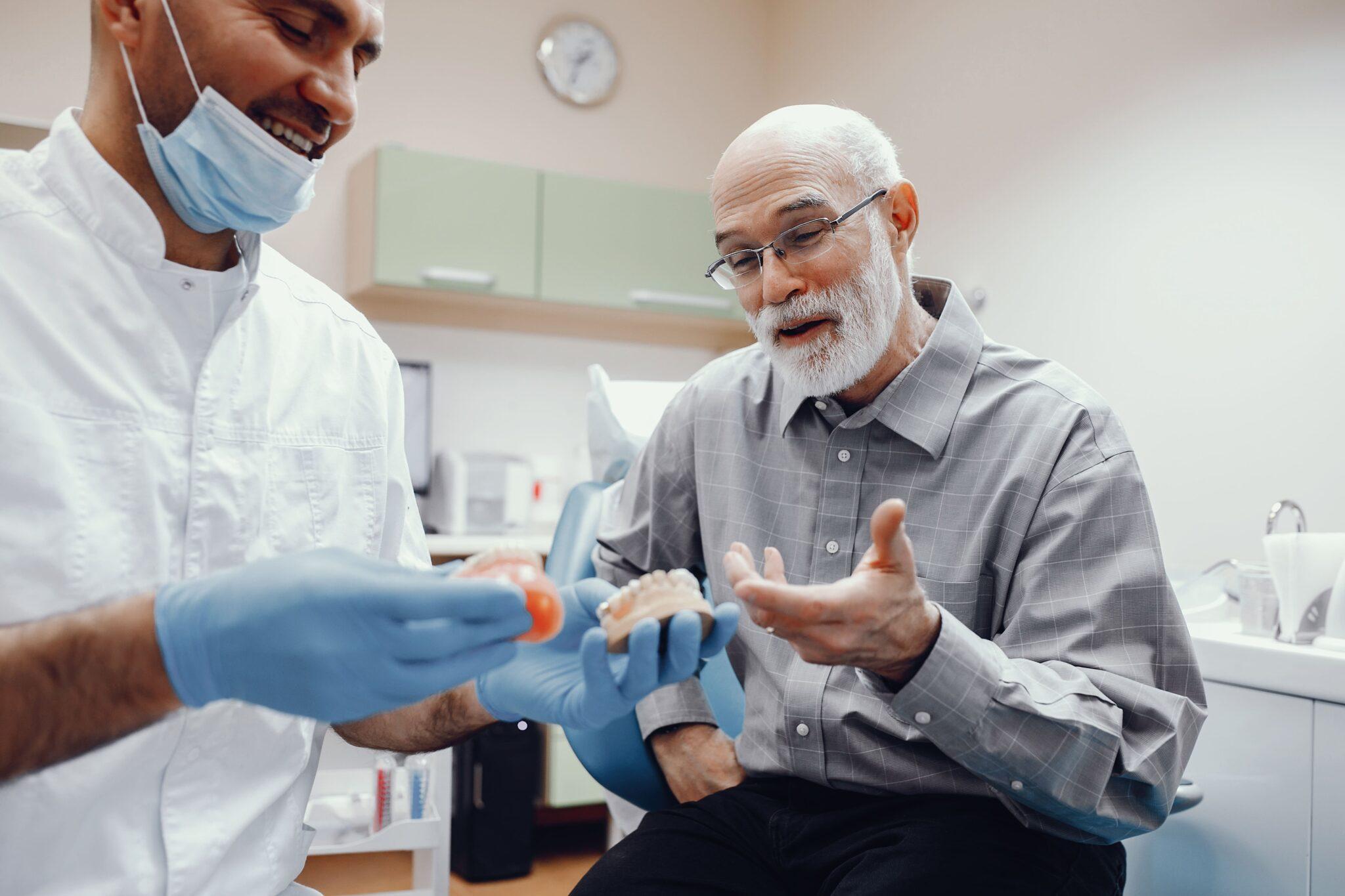Opening hours : 10:00 - 20:00 น.
Check out our services to get the service that suits your purpose. We are ready to make your smile twice as confident.

Dentures are teeth and gums that are fabricated by a dentist to replace your missing natural teeth. Dentures can be one, several, or the entire mouth. They can be just a section of teeth or a section of gums.
• Use if you have lost all your natural teeth
• If your gums are low and make it difficult to fit your dentures, or they fall off easily, you can fix this by placing dental implants to hold the dentures in place, which is more expensive than traditional dentures.
• There are both fixed and removable types.
• Removable dentures are divided according to the materials used to make them, whether they are plastic or metal.
In terms of differences between removable dentures and fixed dentures, there are more or less differences, both in terms of cleaning, efficiency of dentures, and price differences. If anyone is thinking of getting dentures, they can use this information to compare as appropriate.


You should consult a dentist so that the doctor can assess how many dentures you need to have, and the health of the adjacent teeth that are next to the desired teeth, whether they are strong or not, or if they need additional care. Generally, removable dentures are suitable for those who need to have many dentures, but if the adjacent teeth are not strong enough to support the denture hooks, you may use a tight denture attachment, etc.



1. The dentist begins by asking the patient about their history, examining their mouth, taking X-rays, and making a model of the patient's mouth.
2. The dentist checks the alignment of the teeth, selects a color that is close to the original teeth, and creates a denture on the model to obtain beautiful teeth that are the right size for the patient's mouth and have a correct bite.
3. The dentist inserts the denture and corrects the painful position. During the denture making process, the dentist will make an appointment with the patient once a week. The duration depends on the type of denture. After the denture is completely inserted, it may be necessary to return to the dentist in the first month to adjust or decorate the denture to fit the mouth.

• Dentures, do they hurt? How do you feel after wearing them?
In the beginning, when patients are not used to wearing dentures, wearing dentures may feel some irritation. It is difficult to put them on and take them off. There may be a lot of saliva flowing at first. However, the symptoms will decrease as patients get used to wearing dentures.
• How long do dentures last?
Removable dentures have an average lifespan of 5-10 years, depending on the care of the materials and the daily habits of each person using their teeth.
• How to fix loose dentures?
Your dentures may need to be adjusted or redone due to wear and tear from normal use or changes in the shape of your mouth. The shrunken bone or gums make the jaw different from before. Your dentures are looser, making you feel uncomfortable while eating, making it harder to talk, and also causing health problems such as mouth sores and infections.
• Do dentures make you speak unclearly?
Wearing dentures may cause you to have trouble pronouncing some words. But when you get used to wearing dentures, it will be easier to adjust your speech pattern while wearing dentures.
• Does wearing dentures make a difference to the patient?
Wearing dentures is good for dental health because dentures help fill in the missing natural teeth, fill in the cheeks, lips, and sagging muscles, making the patient look younger and helping with eating and speaking better.
• How often should you see a dentist when wearing dentures?
Dentists usually recommend that you come back for a dental checkup every 6 months. Regularly seeing a dentist helps the doctor detect oral infections or even oral cancer in the early stages.
© 2026 Doublesmiledentalclinic. All rights reserved.